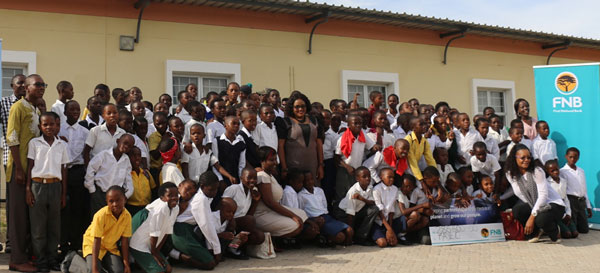
After-school care helps Rundu KAYEC learners achieve 86% pass rate

With the help of the KAYEC Trust’s after-hours support to learners in Rundu, their pass rate in last year’s school examinations, has seen a dramatic improvement. For the almost 130 children attending the KAYEC Centre in Rundu, their pass rate has improved to 86%, far above the average pass rate for the rest of the border town, or the Kavango West Region.
Based on these sterling achievements, the FNB Namibia Holdings Trust announced this week it will give KAYEC more than N$280,000 this year to continue with their proven support to learners.
KAYEC focuses their input on learners’ activities once they leave school in the afternoon. Registered as a trust, it operates through its KAYEC centres where learners are given both sustenance and guidance, to enable them to remain in school. By reducing the dropout rate and by helping learners with their schoolwork, KAYEC Rundu managed to achieve the outstanding pass rate for the learners attending the centre.
The FNB foundation donation was presented to KAYEC’s management at an event at their centre in Rundu.
Illarius Geraldo, Business Manager at FNB Namibia spoke on behalf of the FNB foundation saying “In September 2015 FNB Namibia partnered with the KAYEC Trust in Rundu to maintain after-school services that help young learners in the Kehemu location to stay in school and build the skills they need to succeed. We are proud of the 129 children registered at the KAYEC Rundu centre this year – and we are especially proud of the 86% pass rate recorded last year. This is notable because it contrasts with the school drop-out and repetition rate in Kavango as a whole.”
KAYEC helps those learners who without their assistance would not easily be able to access occupational training. This is also in line with the FNB foundation’s other initiatives to reinforce and support national development goals, especially in terms of education.
“Given the current economic situation in the country which is characterized by high levels of unemployment, critical skills for self-reliance and resilience in these hard times are essential. Therefore, we are grateful to have an opportunity to assist young people in need of such skills. We believe that the sustainability of this programme will be assured, and it will help youngsters to achieve an ultimate goal, which is to find opportunities for employment or to acquire enough skills to be self-employed” said Geraldo.










































